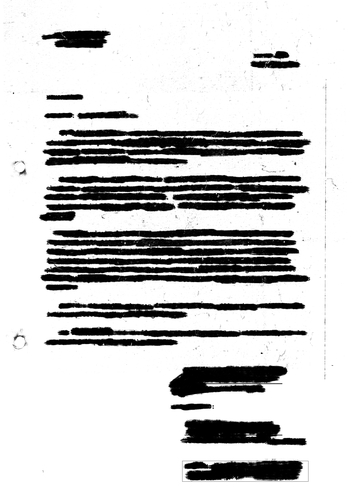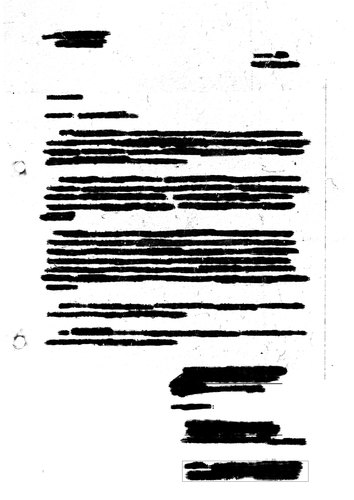 After the Parkland shooting at Marjory Stoneman Douglas High School, there was an investigation into how effectively the school district provided counseling and education services to shooter Nikolas Cruz in the months leading up to the horrific crimes he is charged with—murdering 17 students. When the investigation report was prepared, news media organizations—fulfilling their function to report on government operations and effectiveness—pushed to obtain copies of the report. The judge on Cruz’s case agreed that a redacted version of this report could be made public.
After the Parkland shooting at Marjory Stoneman Douglas High School, there was an investigation into how effectively the school district provided counseling and education services to shooter Nikolas Cruz in the months leading up to the horrific crimes he is charged with—murdering 17 students. When the investigation report was prepared, news media organizations—fulfilling their function to report on government operations and effectiveness—pushed to obtain copies of the report. The judge on Cruz’s case agreed that a redacted version of this report could be made public.
However, after that initial report was released, a Facebook user alerted the Sun Sentinel newspaper to the fact that the redactions were not permanent and could be removed, making it possible to read portions of the report that were supposed to be confidential. Anyone with PDF and Microsoft Word software could remove the redactions.
This additional information detailed a number of ways that the school district failed to follow laws for disabled students and essentially left Cruz without support for more than a year leading up to the attack.
Deciding it had a duty to report on these additional details—because they tended to show the school district had failed in important ways—the newspaper published an unredacted version of the findings, saying they believed the information was “of the utmost importance to our community”.
Then things got hot for the newspaper.
The Broward School Board filed for contempt of court against the Sun Sentinel, saying the newspaper violated the orders of the court. Then a lawyer for the newspaper had a tense court appearance, where one of the judges who originally approved the redacted report sided with the school board and threatened to censor the newspaper by deciding herself to “specifically write word for word exactly what you are and are not permitted to print” in the future.
This, of course, would be unlawful as the First Amendment does not give government, including judges, the power to decide what editors decide to publish or broadcast. It’s called prior restraint and it’s highly offensive to the constitution.
Despite the judge’s obvious anger, will the reporters or paper ultimately face legal consequences?
Signs point to no.
The editor-in-chief of the Sun Sentinel says, “We feel strongly that we didn’t break the law and have no regrets for publishing the school district’s history with the Marjory Stoneman Douglas shooter.”
A court brief also named 30 media organizations siding with the Sun Sentinel, including CBS Broadcasting, CNN, The New York Times, and The Washington Post.
Even the judge, in that same court session, told the newspaper’s attorney that, “Legally speaking, you may be okay.”
She may be angry that information she ordered redacted got out, but her words seem to indicate that she doesn’t think there is much that can be done about it under the law.
Of course, many media advocates believe the judge’s wrath should have been directed at the government agency that failed to properly redact information that the court had determined should not be public. It is not the job of a free and independent news media to protect documents from disclosure; it’s the government’s.
In this case, the School Board did a poor job of protecting sensitive information if a simple copy/paste revealed it. And that mistake enabled the newspaper to access redacted information, which was likely done legally and lawfully.
Marks Gray, P.A. and I frequent represent and advise clients regarding public records and open meetings. Please contact me if you need assistance with such matters. It would be our honor to help you.
